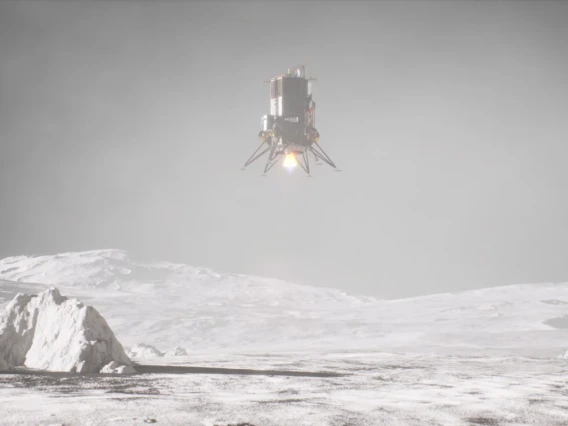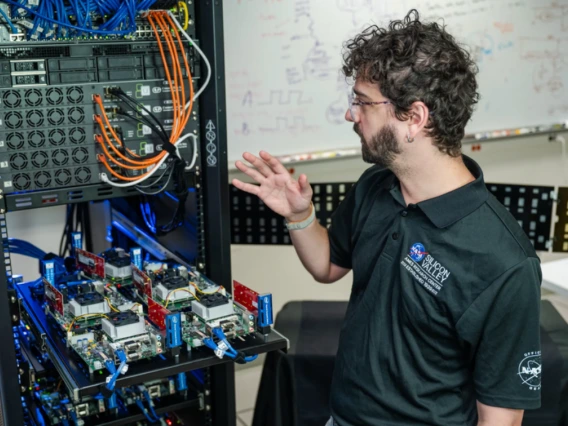Space Domain Awareness
University of Arizona scientists monitor and study objects in Earth orbit and beyond to ensure awareness of intentional or unintentional changes in orbital trajectories.
To propel the next wave of space exploration and deepen our understanding of solar system formation, NASA's OSIRIS-REx mission, led by Dante Lauretta, Ph.D. (Principal Investigator and Regents Professor of Planetary Sciences), has unveiled primordial ingredients in the dust samples collected from asteroid Bennu. These findings offer new insights into our solar system's formation and Earth's origins.
In related efforts, Erika Hamden (Director of the Space Institute and Associate Professor of Astrophysics) discussed NASA’s Landolt mission with Techopedia. This mission aims to create a perfect artificial star using laser technology—a critical step toward detecting habitable worlds similar to Earth in space.
Collaborating with an international team, Ilaria Pascucci, Ph.D. (Professor of Lunar and Planetary Sciences and co-author), utilized the James Webb Space Telescope to study the gas and dust disk around a low-mass star. Their research revealed the largest array of carbon-containing molecules ever observed in such a young system, further enhancing our understanding of planetary formation.
These breakthrough discoveries underscore the importance of continued investment in space missions. The University of Arizona-led OSIRIS-REx mission, under NASA, collected sample material from the 4.5-billion-year-old asteroid Bennu, which revealed evidence of water and high carbon content. According to Lauretta in a discussion with The Washington Post, these findings are crucial as they may offer insights into the origin of life.
Additionally, Vishnu Reddy (Director of the Space4 Center and Professor of Planetary Sciences in the Lunar and Planetary Lab) and his Space4 team identified errant space junk that crashed into the Moon, definitively proving it to be a booster from a Chinese space rocket.
In the fall of 2022, the University of Arizona launched the Space4 Center to consolidate the expertise of researchers in science and engineering. Space4 empowers its collaborators by developing cyber tools and resources for the responsible use of the Earth-Moon system and exploring cislunar space. The center offers expertise in discovery, tracking, and characterization, as well as in astrodynamics, machine learning, data visualization, and workforce development.
In the News
Pagination
- First page
- …
- 2
- 3
- 4
- …
- Last page



